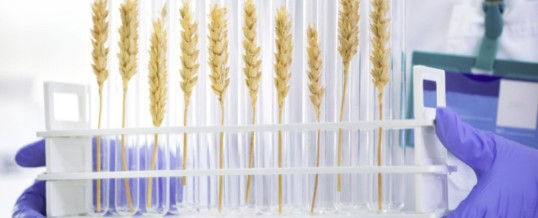
NORWICH, UNITED KINGDOM — John Innes Centre scientists are urging world governments to address major wheat losses by investing in a new international research fund to improve global food security.
The overall goal of the research platform is to reduce the impact of wheat pathogens and call for a coordinated approach to a new “R-Gene Atlas,” which would help identify new genetic solutions for disease resistance for crops.
According to the John Innes Centre, the world loses one fifth of the projected wheat yield annually to pests and pathogens totaling losses of 209 million tonnes, worth £22 billion ($31 billion) along with the climate emergency further disrupting global food supplies.
To circumvent these losses and issues the center is imploring for increased uses of disease resistance found in the genome of wheat and its wild relatives with the hope to provide long-lasting molecular protection against wheat’s major pathogens, including wheat rusts, blotch diseases, powdery mildew and wheat blast.
Specifically, the platform would utilize R-Gene Atlas, a free online portal, that will contain genetic information and enable breeders to design gene stacks using computer modeling before starting their breeding in the field.
According to the John Innes Centre, wheat R genes work by recognizing corresponding molecules in the pathogen called effectors. By identifying the effectors present in pathogen and pest populations, more durable combinations or “stacks” of R genes could be designed.
The R-Gene Atlas will allow users to design molecular markers that could be used to find out what resistance genes they already have in their breeding program or wheat populations.
It builds on recent findings in genomic resources available to researchers in wheat. In the past few years, researchers at the John Innes Centre and The Sainsbury Laboratory have rapidly identified and cloned resistance genes in wheat and its wild relatives using technologies such as AgRenSeq, MutRenSeq and MutChromSeq.
“The new proposal details how the molecular components involved in disease resistance — R genes and effectors — could be captured from both the host and pathogen,” the John Innes Centre said. “Whole genome sequencing would be carried out on diversity panels of wheat, its progenitors and domesticated and wild relatives.”
The cost to launch the platform is estimated to be £41 million ($58.6 million) and would include sequencing diversity panels of the pathogens and 10 host species of wheat, as well as funding 75 scientists across the world to carry out the work.
The researchers suggest funding could be provided by £2 million ($2.9 million) contributions per G20 country spread over five years.
“Compared to the scale of the problem in yield losses to pests and pathogens, this represents excellent value for money,” said Amber Hafeez, postgraduate researcher at the John Innes Centre. “It is unsustainable to continue feeding 20% of our wheat production to pathogens. Our enterprise applies cutting-edge science to a global challenge that is increasing due to the climate emergency.”
Brande Wulff, group leader for the John Innes Centre, added “A lot of the pieces of the puzzle already exist, the idea is to bring them together to make sure we don’t duplicate efforts. We see it as a centrally coordinated model distributed around different countries, using existing capacity.
“Current projections suggest there will be 2.1 billion more people to feed by 2050 and developing disease-resistant crops will be a key part of sustainably feeding us all. We’re determined to develop new ways to increase our genetic understanding and deploy it for the benefit of sustainable agriculture, but we cannot do this without investment.”
Wulff implored the G20 governments to invest in the proposed consortium to reduce disease resistant genes from lab to field.
Source: World Grain
JUN
2021


About the Author: